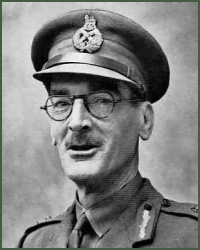DEATH OF A GREAT AMERICAN, A MAN I HAVE ALWAYS HELD IN THE HIGHEST REGARD, AND FOR WHOM I HAVE LONG FELT DEEP RESPECT AND AFFECTION – MY FORMER BOSS, JACK CLARY.
I AM DEEPLY SADDENED.
2011—if you include December 2010 and January 2012—was a terrible year in terms of family members and friends dying. I think the total came to something like 18 in the end; and it affected me profoundly. In fact, it prompted me last Christmas to write to as many friends as possible forbidding them to die in 2012. Tongue in cheek? Of course; but a heartfelt thought nonetheless. Did I mail everybody I wished to? No, there wasn’t time; and, as is the way of things, I had lost contact with some people. But, the best is the enemy of the good—and I couldn’t think of what else to do.
I doubt my wishes have had much to do with it; but, up until a day or so ago, all had survived.
Less than a couple of hours or so ago, I learned that Jack Clary—John G. Clary of the Addmaster and Clary Corporations—had just died at the age of 86. I guess I should regard that as just the natural order of things, because he led a full, rich, long life and contributed greatly to the community; but I am deeply distressed nonetheless.
Jack, to me, was the archetypical “can do” American of the type who helped to bring victory in World War II, and who then went on to make the U.S. the economic power-house it became. He was an engineer, an innovator, a rugged practical man, and both cautious and daring—but he was also the man who gave me my first big break in my business life; something I have never forgotten.
The situation was that his company, Addmaster, made a highly advanced electric adding machine (such devices were swept away by calculators)and wanted to take advantage of the U.K.’s conversion to decimalization in 1971, but they left it a little late—and anyway had no marketing. In the U.S. almost the entire production of the company, of about a million machines a year, was marketed by Sears, so Addmaster’s expertise was almost completely in product development and production. What to do? They did not even have a single salesman.
Jack Clary sent his Vice-President, Arthur J. Damschen—actually the company treasurer—over to Europe to work something out. Eventually, Art made his way to the London branch of the advertising agency, Doyle, Dane, Bernbach, where I worked, and I suggested doing a survey and coming up with a plan. At the time I was one of the more junior members of the agency; but, since no one else seemed interested, my suggestion was accepted.
After I produced a massive report, Jack and Art grilled me for about a day. I have never been so thoroughly interrogated—either before or since. After various adventures, that all led to my being asked to found Addmaster U.K. Given that I was only in my mid-twenties, with no experience of a venture of this kind, that was a brave decision indeed by Jack.
The story of Addmaster UK is a tale for another day—but the bottom line is that I was given an unbelievable opportunity, was supported to the hilt—albeit after much debate—and the enterprise became extraordinarily successful. In fact, we achieved total market dominance in the UK despite arriving late, and the product having certain technical limitations. It is a classic marketing case history of achieving success in a declining market against all the odds, and in the face of much better financed opposition. In the context of business—it remains the best thing I have ever done. Somehow Jack and Art managed to harness creativity and balance it with both control and autonomy. It was a significant managerial achievement; and it is extremely unusual. Corporate financial control is normally rigid and authoritarian.
In the process of all this, though I mainly dealt with Art Damschen, who became both a mentor and a friend, I made many trips to California to report and consult, and had numerous meetings and meals with Jack. I came to respect, admire and like him immensely. Not only was he a first-rate engineer and businessman, but he tolerated total disagreement if he thought his opponent—normally me—was arguing in the company’s interests. In short, he knew how to get the best out of his people—a talent that is decidedly less common in today’s adversarial business climate.
Though he always stayed in role as president of the company, he could also be great company socially. He was both an interesting talker—and a good listener; and he had an excellent sense of humor in a crusty sort of a way.
On one occasion I nearly got him into a gunfight by insisting we intervene when, while driving back from dinner, we saw a woman being forced into a car on Wiltshire Boulevard. Jack protested, because he was aware of the risks—but then did a U-turn and we went to save the day. By the time the incident was over, guns had been drawn, and I had learned the lesson that the streets of London were decidedly less dangerous than LA.
I would have stayed working for Jack except that the desire to write triumphed all. It made no financial sense, but the desire was all encompassing—and I have never regretted my decision. Nonetheless, I have often missed working with Jack and Art, and the others at Addmaster. They were great people, and I miss their companionship, humor and strength to this day—and we had a lot of good times, and more than a few adventures. Indeed, after he received my resignation, Jack hopped a plane from California to London and tried to talk me out of it. I deeply appreciated his concern, and I would be a richer man if I had stayed, but writing was in my blood; and there is no logic to such a creative imperative.
It is to Jack’s great credit that during a period when America has lost so much of its manufacturing base, that he and his sons, John and Hugh, managed to keep Addmaster alive, innovating, and manufacturing in the U.S. By all accounts, it wasn’t easy, but the trio did it—and this year Addmaster is fifty years old. In the context of vicious global competition, that is an extraordinary achievement.
I feel hugely proud to have known Jack—and to have been associated with the Addmaster Corporation. And now I’ll stop because I cannot control my tears. Both Jack and Art would laugh at me for being so emotional—and I just wish they were here to do it. But now both are dead (Art died over a decade ago), and I can but salute their memories; and wish the Addmaster Corporation, and the Clary family, the best for the future.
A fine company and good people. Jack must have been proud—and with good reason. He was an exceptional man who did exceptional things—and I mourn his passing.

 I tend to work on core ideas for a long time. This doesn’t mean that I don’t have fresh thoughts as I write—I most certainly do—but it seems to be my habit to come up with a concept, and then store it away in my mind while it matures (or dies). There is a vast difference between an initial thought and a well developed idea. The first is a word or a line. The second contains much of the structure of the final story.
I tend to work on core ideas for a long time. This doesn’t mean that I don’t have fresh thoughts as I write—I most certainly do—but it seems to be my habit to come up with a concept, and then store it away in my mind while it matures (or dies). There is a vast difference between an initial thought and a well developed idea. The first is a word or a line. The second contains much of the structure of the final story. Today I decided to give Spinnaker a workout—both by writing my backlog of blogs—and by doing as much of my normal work on it as possible. It is my experience that you can only really assess a computer by using it operationally. Pecking away at a keyboard in a showroom doesn’t really cut it as far as I am concerned.
Today I decided to give Spinnaker a workout—both by writing my backlog of blogs—and by doing as much of my normal work on it as possible. It is my experience that you can only really assess a computer by using it operationally. Pecking away at a keyboard in a showroom doesn’t really cut it as far as I am concerned. I will confess that I was somewhat nervous when I started. Normally, I have had a computer guru close by when I have done this stuff, but over the last couple of years I have put much effort into learning the basics. Yes, I know a writer should always prioritize writing, but I am so computer dependent these days that I have come to the conclusion that one should be able to do everything from doing a completely fresh install, to designing and uploading a web site. Can I do all this at present? No, but I plan to be able to by the time I am 70—and I will be 69 next May.
I will confess that I was somewhat nervous when I started. Normally, I have had a computer guru close by when I have done this stuff, but over the last couple of years I have put much effort into learning the basics. Yes, I know a writer should always prioritize writing, but I am so computer dependent these days that I have come to the conclusion that one should be able to do everything from doing a completely fresh install, to designing and uploading a web site. Can I do all this at present? No, but I plan to be able to by the time I am 70—and I will be 69 next May.
 doesn’t—despite the good offices of various friends over the years who have invited me to their various tables. My Anglo-Irish origins will out.
doesn’t—despite the good offices of various friends over the years who have invited me to their various tables. My Anglo-Irish origins will out.  As for the Christmas meal when I was a kid, I loved it, but was most excited by the lighting of the plum pudding with brandy—a ritual that was normally carried out with more vigor than wisdom. Quite how none of us went up in flames is a good question. Still, since there were twelve of us children in all, I guess we could have spared one. Though maybe not. The younger ones, in particular were, very sweet. Some still are. Others, sadly, are dead before their time—Rex, Desiree, Martin and Christian. All were younger than me. Eight of us are left.
As for the Christmas meal when I was a kid, I loved it, but was most excited by the lighting of the plum pudding with brandy—a ritual that was normally carried out with more vigor than wisdom. Quite how none of us went up in flames is a good question. Still, since there were twelve of us children in all, I guess we could have spared one. Though maybe not. The younger ones, in particular were, very sweet. Some still are. Others, sadly, are dead before their time—Rex, Desiree, Martin and Christian. All were younger than me. Eight of us are left.
 happy memories and because it had been my mother’s country of birth, but also because it had been the scene of intense combat between the British and the Japanese during World War II,and because one of my relations, Lieutenant General Walter ‘Joe’ Lentaigne, a former Gurkha officer, had not only distinguished himself there—but had commanded the Chindits after Wingate was killed.
happy memories and because it had been my mother’s country of birth, but also because it had been the scene of intense combat between the British and the Japanese during World War II,and because one of my relations, Lieutenant General Walter ‘Joe’ Lentaigne, a former Gurkha officer, had not only distinguished himself there—but had commanded the Chindits after Wingate was killed. But he is probably best known for creating the Chindits—a special unit which was established to penetrate deeply behind Japanese lines, and which was to be supplied solely by air. The objectives were to destabilize the Japanese by threatening their lines of communication, and to make it impossible for them to invade India from Burma.
But he is probably best known for creating the Chindits—a special unit which was established to penetrate deeply behind Japanese lines, and which was to be supplied solely by air. The objectives were to destabilize the Japanese by threatening their lines of communication, and to make it impossible for them to invade India from Burma. 
 The name “Chindit” is an English corruption of the Burmese word “Chinthe” describing a mythical lion.
The name “Chindit” is an English corruption of the Burmese word “Chinthe” describing a mythical lion. place. It had been the location of her near perfect, but very short, marriage—and it was where her adored husband, my grandfather, John Lentaigne, died of cholera.
place. It had been the location of her near perfect, but very short, marriage—and it was where her adored husband, my grandfather, John Lentaigne, died of cholera.  Burmese—concerned a row between their Chinese cook and her husband’s Ghurkha batman. All was noise until the Ghurkha drew his kukhri—the distinctive blade that all male Ghurkhas carry (or used to carry) and chased the Chinese cook into the distance. Lunch was late that day. Granny, for all her noble aspirations, had a sense of humor.
Burmese—concerned a row between their Chinese cook and her husband’s Ghurkha batman. All was noise until the Ghurkha drew his kukhri—the distinctive blade that all male Ghurkhas carry (or used to carry) and chased the Chinese cook into the distance. Lunch was late that day. Granny, for all her noble aspirations, had a sense of humor. and running across a site called
and running across a site called  Jane, a friend of more decades than I care to mention, had a hip replacement operation on Monday, so I’m looking after the family cats for a while.
Jane, a friend of more decades than I care to mention, had a hip replacement operation on Monday, so I’m looking after the family cats for a while. 
 from my little experiment at trying to turn the main elements of my Marketing Plan—for books, needless to say—into a graphic which would fit on a single page. I’d show you the end result but, being my first attempt, it is still a little crude; and, anyway, it is secret.
from my little experiment at trying to turn the main elements of my Marketing Plan—for books, needless to say—into a graphic which would fit on a single page. I’d show you the end result but, being my first attempt, it is still a little crude; and, anyway, it is secret. 
 I have been a supporter of Israel for as long as I can remember—not because I believe in all their policies—but because I was born in 1944 and was brought up being made fully aware both of the Holocaust, and of the wider historical context. Simply put, the West, as a whole (something we tend to choose to forget), had treated the Jews abominably for centuries. Given the totality of all this, of course the Jews deserved their own country—and where else could it be but Israel? It seemed to be no more than natural justice; and I haven’t changed my opinion.
I have been a supporter of Israel for as long as I can remember—not because I believe in all their policies—but because I was born in 1944 and was brought up being made fully aware both of the Holocaust, and of the wider historical context. Simply put, the West, as a whole (something we tend to choose to forget), had treated the Jews abominably for centuries. Given the totality of all this, of course the Jews deserved their own country—and where else could it be but Israel? It seemed to be no more than natural justice; and I haven’t changed my opinion. 
 should adopt a tortoise as a logo! However, though I have made my share of mistakes, in most cases there are good reasons for the time I’m taking (though some could better described as utterly frustrating—for want of a blunter phrase—and a few as bad luck).
should adopt a tortoise as a logo! However, though I have made my share of mistakes, in most cases there are good reasons for the time I’m taking (though some could better described as utterly frustrating—for want of a blunter phrase—and a few as bad luck).